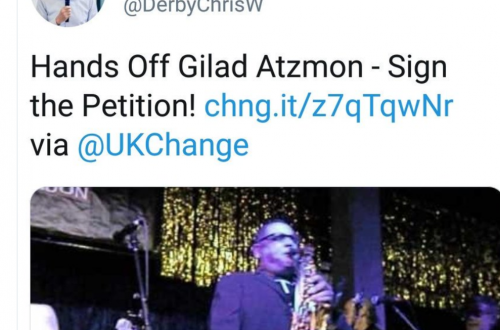By Abi Adnan Oktar
Turkey was shaken last weekend as two bombs exploded during a peace rally in Ankara, killing 128 people and injuring another 500. The rally was organised by several groups, including the pro-Kurdish Peoples’ Democratic Party (HDP), to call for an end to the escalating violence between the Turkish government and the PKK. Footage of police descending on the scene immediately after the explosions shows them blocking ambulances and beating bewildered protesters who were frantically calling for help for the injured. Turkish security sources have since suggested that ISIS may have been behind the attacks but opposition figures have blamed the government itself (the bomb blasts were suspiciously close to elections which are to be held in two weeks time).
In what has now become typical of how the Turkish government responds to such incidents, it was very quick to shift the blame. Prime Minister Ahmed Davutoglu dedicated half of his press conference to lambasting the leaders of opposition parties. He even suggested at one point that the Justice and Development (AK) Party was not to blame as the current government was not an AK Party government but an interim government until the early elections in November. The fact that the AK Party has ruled the country since 2002 and the explosions happened on his watch seemed to be irrelevant to him. Davutoglu has become well known for his bizzare remarks; as late as August 2014, he avoided referring to ISIS as a terrorist organization, defining it instead as a “reaction born out of discontent and anger.” Davutoğlu also argued that “jihad is the name of fighting for our honor,” and is not related to terrorism. The press conference also caused further controversy when the Justice Minister Kenan İpek, appeared smiling with a grin on his face and the Interior Minister Selami Altınok, denied complete responsibility on behalf of the ministry for the attack which stemmed from a security lapse. This also led to the Republican People’s Party (CHP) head Kemal Kilicdaroglu demanding that the interior minister and justice minister either resign or be removed from office for their behaviour and attitude following the attacks.
There are hard-hitting questions which need to be asked such as why there are no pending operations against ISIS, the suspected group behind these attacks, despite their obvious activities within Turkey; why Turkey’s national intelligence service (MIT) and police did not act on intelligence 3 days prior to the explosions while the foreign embassies in Ankara did by taking their own precautions; how it was possible that two bombs could be set off in the heart of Ankara just 3 kilometers away from MIT’s HQ; why were there no police check points where the protestors were meeting for the start of their rally; how and why HDP went from being a credible partner for peace for the AK Party government pre-election to an avowed enemy full of ‘non-natives against Turkey’ post-election etc. There are many questions to ask but no longer the independent media to ask them and to call the government to account.
The AK Party government has systematically eroded the independent media (as well as any other forms of checks and balances against its rule) by undermining it through the twin-track of ‘buy out’ or ‘beat up’. ‘Buy out’ consists of forcing independent media to bankruptcy through heavy penalties and fines and by restricting its income by penalizing businesses that advertise on its screens and pages. Where that fails, ‘beat-up’ is used which basically consists of jailing its journalists and editors, forcing papers to fire columnists, allowing mobs to attack its offices and freeing suspects who confessed to beating up a critical columnist and TV presenter in front of his house breaking his nose and ribs. Through this twin track approach, the AK Party government has created its own media, while suppressing those of others. It has been years since the president, prime minister or departmental minister has graced the studios of an independent news channel for an interview or allowed critical journalists to attend press conferences which are now accredited. So even journalists not in prison or hospital don’t have the opportunity to pose a question to government ministers.
Although Erdogan was initially seen as a moderate, his ruling AK Party has become increasingly right-wing, with attacks on civil liberties and press freedoms becoming common place. He also fancies himself as some sort of modern day ‘Caliph‘ and demands allegiance from other politicians and public figures; this is becoming a significant concern among Turks. His rhetoric has also become more anti-Semitic, anti-Western and pro-Islamist over the years whilst at the same time he has become increasingly embroiled in allegations of financial fraud, corruption and dealings with terrorists.
Despite all this, Erdogan has controversially been awarded an honorary doctorate by a Japanese University for his contribution to law. This only serves to reinforce the sense of irony and frustration among the Turkish general public. It is about time that the AK Party learnt that upholding the rule of law and freedom of press is as much as in their political interest as it is in that of the Turkish citizens. Among other things, it is the media’s role to remind the government of this and to hold it to account. Without these checks and balances, Turkey is less, not more safe, as the cowardly attacks in Ankara (whoever the culprit) have once again demonstrated.


